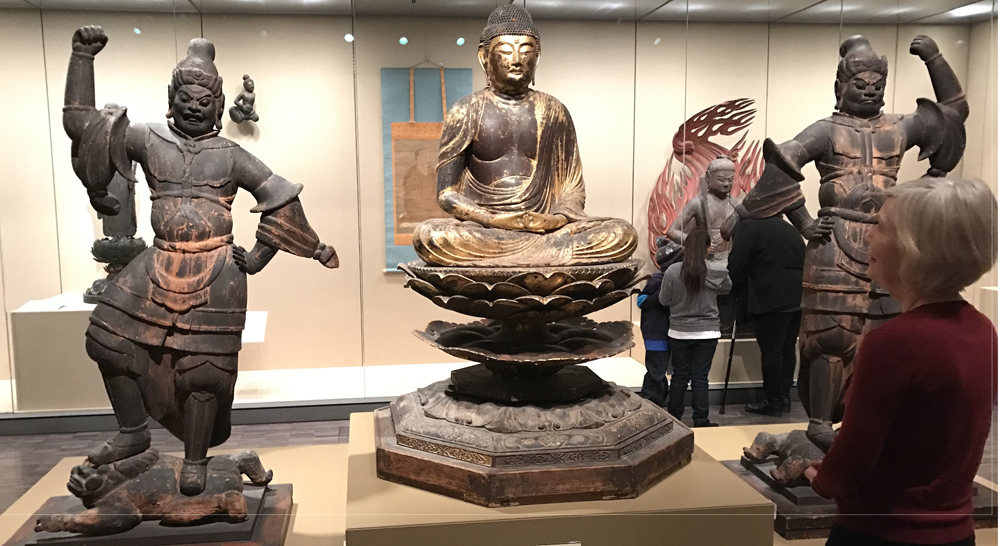A New Year’s resolution to improve your well-being is to stamp out demons, which are mental habits that cause suffering. Stamping out demons is depicted in Buddhist art, and recently I enjoyed a sculpture of Buddha’s guardians stamping out demons (SF Asian Art Museum). Visualizing can help us stamp out our demons.
Kick them out of your heart.
Open your heart, and feel your Buddha nature of love and compassion.
Demons are mental poisons (called kleshas), such as desire (greed), delusion (ignorance), hatred (anger), pride (ego), and envy (jealousy). Kleshas are the source of our suffering.
Buddhist economics and free market economics view our mental states very differently. Free market economics assumes that people are greedy and care about maximizing their own income, without caring about the well-being of others. Happiness in free market economics depends on personal pleasure and the avoidance of pain. You are happy when buying things that make you feel good (at least in the moment). People chase after large wealth or great power or awesome sex or a major championship in the belief that they will bring lasting happiness. Reaching a goal gives us a momentary high that soon wears off, and we are off chasing the next high.
Buddhist economics shares the view of Aristotle—happiness comes from self-realization and living a worthy and moral life, with people developing their full potential and living a life in service to others and the community. In Buddhist economics, we are all interconnected, and so desire, or grasping after material possessions, causes us pain. The Dalai Lama teaches us that the feeling of not having enough and wanting more does not arise from the inherent desirability of the objects we are seeking, but from our own mental illusions. “Genuine happiness is characterized by inner peace and arises in the context of our relationships with others.” (The Art of Happiness, p 99)
In Buddhist economics, rather than maximizing their own income, people try not to cause pain and strive to reduce the suffering of others. In daily life, we do not want to ruin others’ experiences or even their expectations of happiness. For example, I cause harm when my words or actions anger others, or make them feel guilt or shame (or any klesha).
As a New Year’s resolution, I will continue to stamp out anger, which seems to be one of my hardest mental poisons to tame. When I become angry at my partner and make unkind comments, I hopefully remember to take a break. Visually, I stamp out the demon of anger, and then open my heart to be in touch with my love and compassion for him. After I apologize to my partner for my angry words, I let all memory of the event fade away.
Life will always have its ups and downs, and we will have negative emotions and pain. The key is not to grasp onto the bad feelings, but to let them float by. When we do grasp our mental poisons, hopefully we realize it and stamp our demons out before they harm us and others.
A Buddhist New Year’s prayer for you:
May the year be fulfilling,
May you stamp out your demons!
